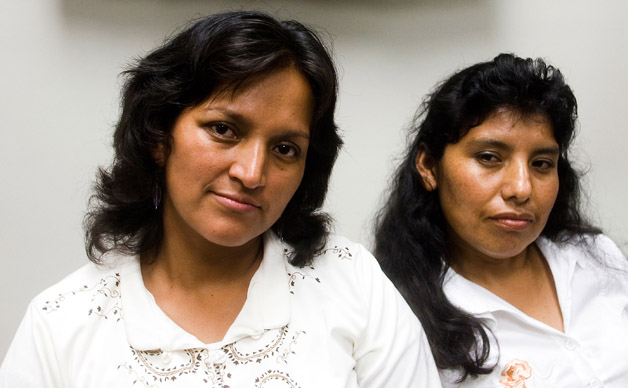
CASE STATUS
Active
HUMAN RIGHTS ISSUES
COUNTRY
The Accomarca Massacre is one of the most infamous crimes committed by the Peruvian military during the country’s two-decade long civil war. On August 14, 1985, the Peruvian army murdered 69 unarmed indigenous Quechua villagers, including many young children. CJA has played a central role in trying to hold accountable two of the ringleaders of the massacre.
CJA’s clients, Teófila Ochoa Lizarbe and Cirila Pulido Baldeón, were just 12 and 13 years old when soldiers, dressed in fatigues and carrying machine guns, came to Accomarca. Teófila and Cirila were able to find hiding spots, and witness the violent events unfold.
From their hiding spots, Teófila and Cirila saw the soldiers rounding up the villagers, beating the men and raping the women and girls. Teófila and Cirila watched as the soldiers corralled the villagers into two buildings, open fire with their guns and toss grenades. The girls’ family members—their mothers and siblings—were among the 69 murdered.
At the time, Peru’s army was fighting Maoist guerrillas belonging to the Shining Path movement. The villagers, like many indigenous communities, were caught in the middle of the struggle between rebel forces and the government.
Two decades after the massacre, Teófila and Cirila worked with CJA to bring the massacre’s ringleaders, Lieutenant Telmo Hurtado and Lieutenant Juan Rivera Rondón, to justice. Both men had retired in comfort to the United States. That is, until CJA exposed them.
In 2007, CJA filed two civil suits in federal court, one against Rondon in Maryland and the other against Hurtado in Florida.
The federal court in Florida entered a default judgment against Hurtado for torture, extrajudicial killing, war crimes, and crimes against humanity, awarding $37 million to the plaintiffs. The judgment was the first time that anyone had been held accountable for committing atrocities during the Accomarca Massacre.
A year later, in 2008, the United States deported Rondon back to Peru. In 2011, Hurtado was extradited, marking the first time the US authorities honored an extradition request for torture and genocide.
For the next five years, criminal proceedings wound their way through a Peruvian court in Lima.
Finally, on September 1, 2016, the court found our defendants and five others guilty grave human rights violations, sentencing Hurtado and Rondon to 24 and 23 years in jail, respectively. The landmark Accomarca Massacre conviction is the culmination of nearly a decade of advocacy by CJA on two continents.

